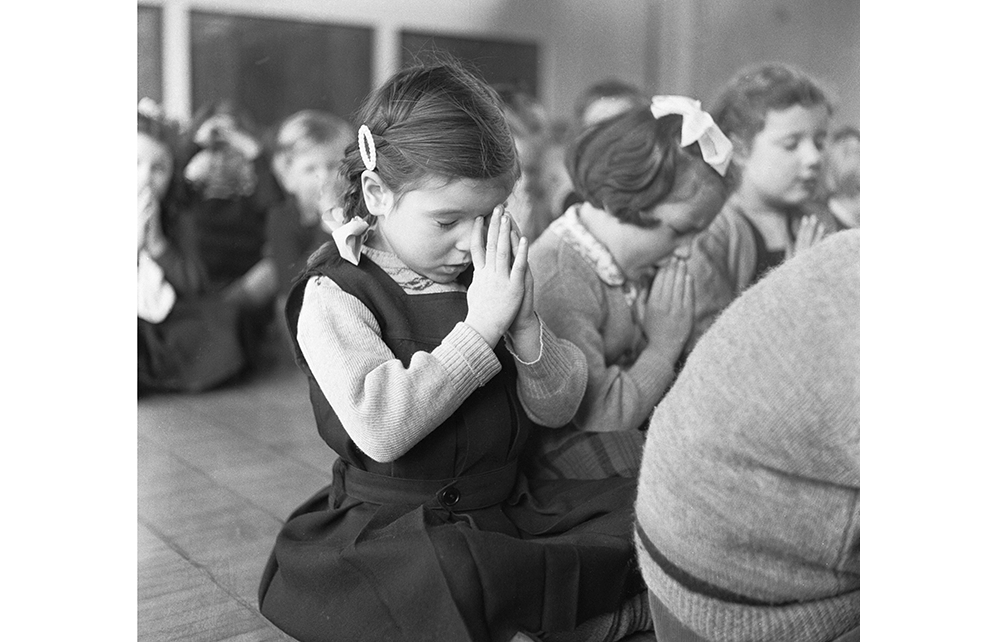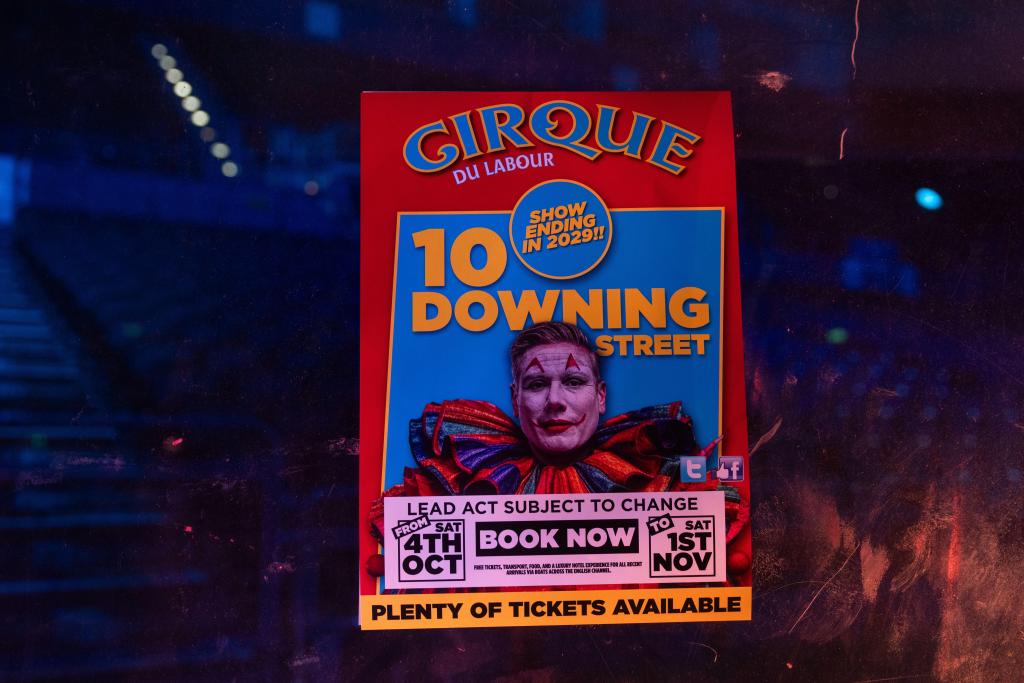Imagine the government pledged to introduce a 20 per cent tax rise on ‘bankers’. Then imagine that, when the details were announced, the new tax made no distinction between HSBC executives and lowly bank tellers on £19,000 a year. Furthermore, imagine that the public debate failed to mention the people who were going to suffer most from the policy; that commentators argued over whether the tax rise was technically workable, while ministers self-righteously declared that they were sure the richest people in the country could cope with paying a little more.
Far-fetched? Yes, but not a million miles from Labour’s proposed imposition of VAT and business rates on independent schools. Everyone is talking about the wealthiest institutions, the places which educated David Cameron and James Blunt, the ones with state-of-the-art facilities and acres of playing fields. They are not talking about the other end of the spectrum – the smallest, poorest, most threadbare schools in the country, that face a catastrophic financial threat.
Take Emmanuel Christian School (ECS) in Leicester. It started in 2003 with seven pupils, and has grown to a mighty 54, who attend lessons in a building rented from the local church – or in a couple of Portakabins round the back. The ‘grounds’ of the school are the residential street on which it is located; the whole street is invited to the school’s annual summer celebration. (It helps to be on good terms with the neighbours when the street fills with traffic at pick-up and drop-off time.) The fees at this centre of privilege? They’re means-tested, but the average is £220 a month.
Andy Harris, ECS’s headteacher, previously taught in the state sector and took a pay cut to join ECS. ‘It’s a big sacrifice,’ he says. The school has never made a profit and has to be ‘very frugal’. At one stage last year, they had a shortfall of a few thousand pounds and didn’t know how they were going to pay staff. So everyone prayed, and lo, a generous donor turned up and saved the day. Schools such as this are used to living on the financial edge. A sudden 20 per cent fee hike could push them over it.
‘This could make these schools unviable. You could have 20,000 kids who don’t have a place to go to’
The Christian Schools’ Trust, to which ECS belongs, numbers about 30 – and almost as many are in the works, with idealistic local groups coming together to start new schools. Of the nearly 700 independent Christian schools, 30 per cent have 200 or fewer pupils. Factor in the 50 independent Muslim schools – median fees £3,000 to £3,500 per year – and 60 to 70 Jewish schools, where the average is around £5,000, and you are talking about the education of many thousands of children.
But for the purposes of public debate they might as well be wearing invisibility cloaks. ‘It’s no good independent schools pleading poverty,’ Health Secretary Wes Streeting has said, while the education expert Sam Freedman generalised to the BBC that ‘the vast majority of people who use private schools are in the top 10 per cent of most wealthy households’. Critics of the policy, basically accepting this frame, complain about ‘the politics of envy’ or quibble over the logistics.
Yet as the blogger and school governor Diarmid Mackenzie has observed, the figures tell another story. Although half of families (not quite ‘the vast majority’) are indeed in the top decile, he writes: ‘Fifteen per cent of families who use independent schools, around 90,000 of them, have below average household incomes. I have not seen any commentator on this topic acknowledge this fact.’
So set aside the images of chapel spires and cricket fields, and picture instead a few rented buildings in a poor part of town. Often a school shares premises with a place of worship: Ashfaque Chowdhury, of the Association of Muslim Schools, points out this makes financial sense. ‘Imagine if 50 Muslim schools close, is that going to improve Labour’s relationship with Muslims? And as a result, maybe another 50 mosques close because they can’t pay the bills?’
Francis Green, an academic who has long advocated policies like Labour’s, believes the impact will be minimal. Small religious schools won’t bring much VAT revenue to the Treasury, he admits, but ‘I expect, however, that the tax will not make a big difference to the numbers of pupils attending these religious schools, even if it causes them to raise their fees by, perhaps, 10 or 15 per cent. I somehow doubt, therefore, that the government would be keen to make an exception for these schools.’
Chowdhury is more alarmed: he believes the impact will be ‘absolutely devastating’, and that dozens of Muslim schools could be at risk. ‘At the moment they’re just about breaking even. As soon as you throw in another 20 per cent, where are they going to get it from? Can they get it from the parents? They’re poor as it is. They’re taxi drivers and bus drivers, they’re not doctors and lawyers.’
It’s a similar story with independent Jewish schools, which typically serve low-income homes – often with six or more children – in Charedi communities. Raisel Freedman, from the Partnership for Jewish Schools, says: ‘The reality is this could make these schools financially unviable. You could have up to 20,000 kids who don’t have a place to go to.’
That poses urgent practical questions. ‘There is still a lot of low-level anti-Semitism, of the can-throwing, abuse-shouting kind, and the police support is not always where it needs to be,’ she says. ‘If these schools close, and the solution is to put hundreds of Charedi children into local schools, it could be a recipe for disaster.’
Steve Beegoo, of the Christian Schools’ Trust, says it’s impossible to predict the damage: ‘A lot of the schools are praying to God for miraculous intervention.’ Specifically, they hope that the government could exempt smaller schools from the tax increases. It could kick in if fees are above, say, the current level of state education spending per pupil: £8,000, or close to £10,000 if capital costs are included. Even a £5,000 floor could save many schools.
Religious education is already taking a hit: among others, Scotland’s only Catholic boarding school has announced it is closing, citing VAT as a factor. Its fees were £39,000, so Labour might regard it as an acceptable sacrifice in the cause of equality. It is less clear how that applies to the tiniest grassroots schools.
The Treasury has offered a concession: schools can reclaim VAT on goods and services, which it ‘expects’ will bring the real cost down from 20 per cent to ‘around 15 per cent’. But once again, this seems designed for the kind of school which occasionally splashes out on a shiny new performing arts centre. Whereas small Muslim schools, for instance, aren’t regularly investing in infrastructure and IT. As Chowdhury observes: ‘They don’t buy a huge amount of stationery because they’ve only got 70 or 80 kids. The majority don’t provide external lunches – it’s kids bringing packed lunches. They can’t claim on uniforms because they’re buying £20, £30 uniforms for the year.’
Harris, similarly, says he would only be able to reduce VAT to a minimum of 19 per cent: ‘One of our families is a single mum, a teaching assistant on universal credit. An extra 19 per cent on her child’s fees is just not going to be possible.’
In theory, Labour should love small faith schools, which exemplify the virtues of ‘service’ and ‘partnership’ that Keir Starmer so often invokes. They depend on the public-spiritedness not only of the staff, but of parents who step up and volunteer. ‘When I was a headteacher,’ says Beegoo, ‘that was why we were able to keep the fees so low. Everybody was DBS checked, all the right processes were gone through. But we would have needed to employ many more playground supervisors, teaching assistants, people to take the sports or the clubs.’
Moreover, Beegoo says, few institutions are so diverse. ‘You’ve got people of every ethnic background, every socioeconomic stratum of British life. They very much work on the model that those who can pay a bit more, pay a bit more, and for those who can’t, bursaries are created to support them.’
And not everyone at a Christian school is a believer: at ECS, only 70 per cent of the children are from Christian families. One child, says Harris, ‘was at a state school primary and couldn’t cope with the vast amount of pupils. The parents had heard about our school through a family friend. I spoke to a teacher from one of his previous schools, and this child has now completely changed.’ For the parents, the occasional Bible class is a small price for this kind of pastoral support.
There are many stories like this. Beegoo says that as a headteacher of a small school, he would hear from ‘scores and scores’ of ‘frantic’ parents at bigger schools whose children were being bullied – or who struggled to cope with ‘the Victorian-factory model that we’ve inherited of cramming thousands of teenagers together, in a group of buildings where they move 30 at a time from one teacher to the next’. Some children simply sink in these institutions; they can thrive in the family-like setting of a small school.
As one governor of a small Christian school observes, the need is even greater since the pandemic: ‘There are a lot more children with emotional and mental needs. They’re not making it up. I am a huge fan of state education, but there is a strength in having smaller schools.’ When the governor’s school was inspected, the inspector was visibly moved by the children’s emotional wellbeing and spontaneously declared: ‘I’ve never seen anything like it.’
Could the government exempt schools below a certain fee threshold? Harris, whose school is in a Labour constituency, says his local caseworker ‘has been great, to be honest. She said: “This policy isn’t intended for schools like yours.”’ But so far, the government has made no indication that it has even noticed schools like Harris’s. When I asked the Treasury about the smallest faith schools, it said in a statement: ‘We want to ensure that all children have the best chance in life to succeed. Ending tax breaks on private schools will help to raise the revenue needed to fund our education priorities for next year, such as recruiting 6,500 new teachers.’
These schools may be a small part of the picture, but their fate will tell us a lot about Starmer’s government. Does it believe in a flourishing, diverse civil society of little platoons kept going by heroic self-sacrifice? Or is it a choice between elite institutions if you can afford them, and a single state-run model if you can’t?
Listen to Dan Hitchens discuss his article further on the latest episode of Holy Smoke, with Damian Thompson and Raisel Freedman from the Partnership for Jewish Schools:







Comments